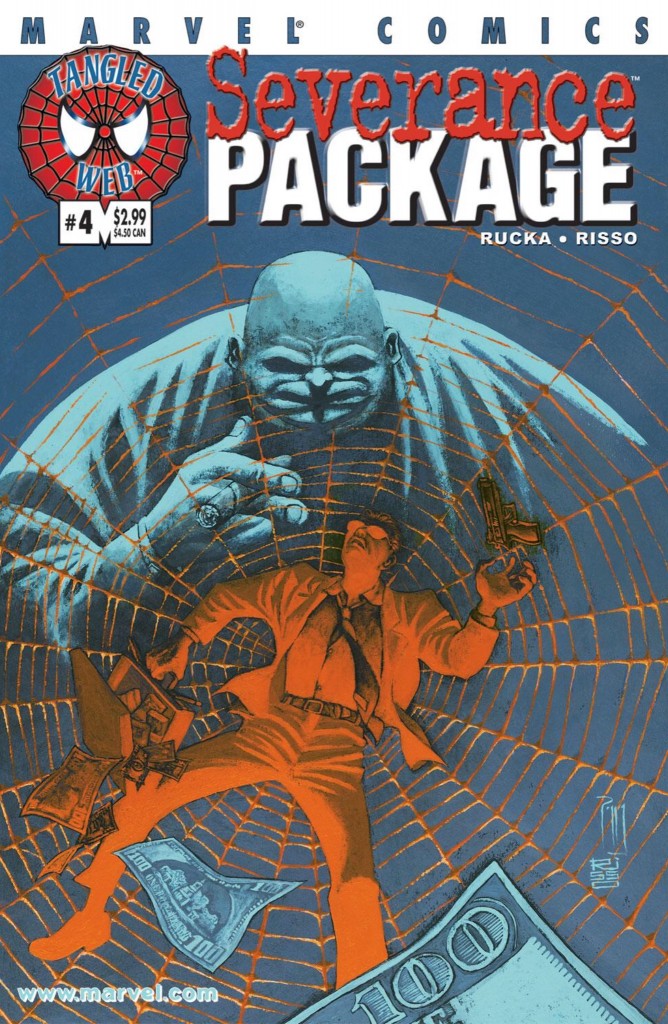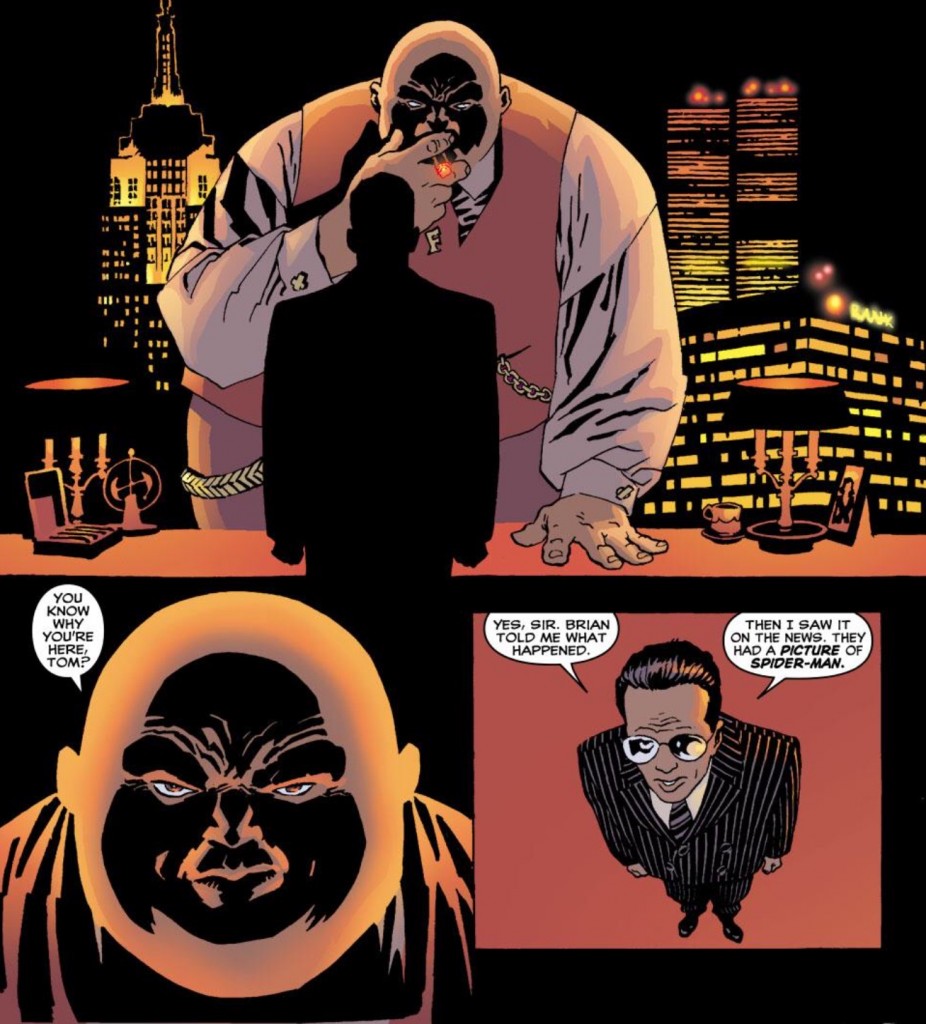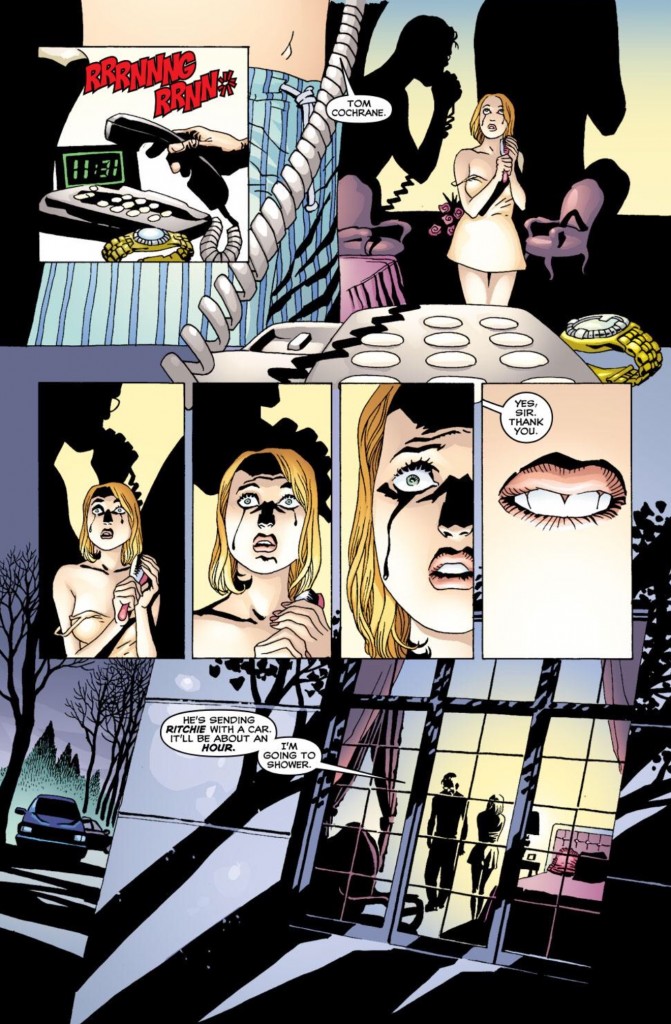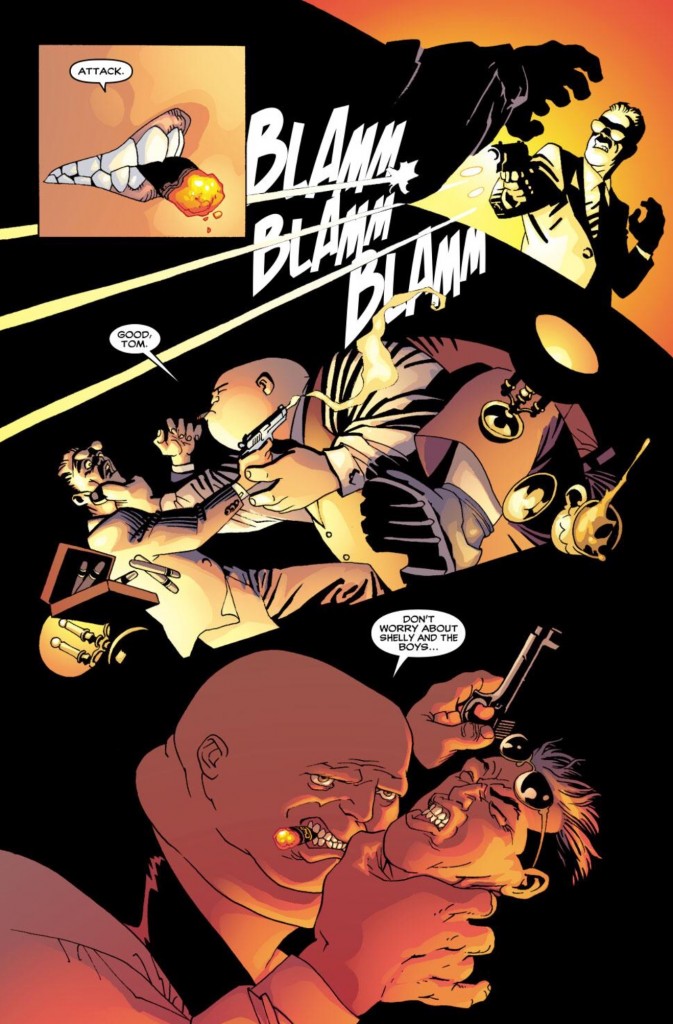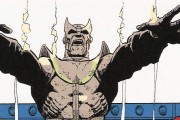“With great power, must also come, great responsibility.” I know it, you know it, pretty much anyone who has ever picked up a Spider-Man comic or watched a Spider-Man animated series or live-action movie knows this is central theme of anything related to the webhead (well, maybe not viewers of the Marc Webb movies, since apparently the Uncle Ben stuff was unimportant to them).
And yet, there are instances where creators have surprised us and found a way to offer a new spin on this famous mantra. Greg Rucka and Eduardo Risso’s “Severance Package,” as published in Spider-Man: Tangled Web #4 is one of those instances. As was often the case in this short-lived series from the mid-2000s, Spider-Man was relegated to the periphery of while the spotlight was directed towards a supporting character – Tom Cochrane, an employ of Wilson Fisk’s who learns on the very first page of this comic that something very terrible has happened at one of his job sites that will in all probability lead to his death. And thus begins one of the most unique takes on power/responsibility I have ever read in a Spider-Man comic.
“Severance Package” is a highly unsettling story that forces the reader to identify with and sympathize with a very hardened criminal in Cochrane. We watch as this character interact with his wife and children, all while carrying the knowledge that the next time he leaves his house, he’s going to be driven to the Kingpin’s office tower and be killed. Because we don’t actually get to see Cochrane be a criminal – well, at least not until the very end in one of many great twists worked in by Rucka – the creative team begs the readers to root for their trouble protagonist. Like Cochrane’s wife, we are being egged to scream at him to kill himself, flee the country, do SOMETHING that will help you escape your demise.
But he won’t nor can’t, because “with great power, must also come, great responsibility.” In “Severance Package,” this mantra applies to villains as much as it does heroes. Cochrane had a job to do, a job that he failed to accomplish because he didn’t take into account that a costumed hero like Spider-Man could disrupt everything.
Thanks to Spider-Man, Cochrane knows he messed up. He knows he failed to live up to his responsibilities. And because of that, the Kingpin is going to kill him. Because the Kingpin has responsibilities too, and allowing someone who flat out screwed up another chance to potentially screw up in the future not only sets a bad example to other employees, but could potentially sink Fisk’s entire criminal enterprise.
Cochrane tells his wife that the consequences he now faces have always been a part of the agreement. As one of the Kingpin’s top lieutenants, the Kingpin bestowed great power upon Cochrane. And with great power … you already know this. But doesn’t make you feel dirty inside to be thinking about it from this angle?
For Cochrane, alternatives like suicide or fleeing are akin to Spider-Man not wanting to fight crime because he rather go on a date with Gwen Stacy or Mary Jane. This is all part of the deal. He has to face the music. And by being so pragmatic, Cochrane indirectly honors another one of his responsibilities – his family.
In “Severance Package’s” dramatic final act, Rucka reveals why Cochrane is being so honorable about his impending murder. After carrying out one more task for the Kingpin – executing an arrogant limo driver who had also screwed up in his responsibilities – Cochrane tells Fisk that he’s been a good soldier and made things easy for him … so please spare his family. Apparently Fisk has one of his henchmen waiting outside of Cochrane’s house in case things got messy. If Cochrane didn’t accept his doom, his wife and kids would have obviously have been killed.
Just as he chokes the final bit of life out of him, Kingpin tells Cochrane that his family is safe, the he will also be “responsible.” It’s yet another bit of brilliantly uncomfortable character work from Rucka. There’s something almost admirable about the way Fisk send out a lifeline to his loyal soldier – as he murders him (and frames the struggle to make it look like Cochrane came at him and Fisk was acting in self-defense).
For such a short comic, “Severance Package” is just enormously complex, bringing forth emotions from its characters and its readers that are completely unexpected. On a slightly tangential note, if you haven’t read more of Greg Rucka’s work (his current Image book, Lazarus is fantastic), you should go out and do so right now, especially if you’re a fan of his characterization in “Severance Package.” Still, even with a great assortment of Rucka stories to choose from, “Severance Package” stands as one of my favorites. I would have absolutely paid money every month to read a book at Marvel’s underworld characters as penned by Rucka. There is a level of humanity and pathos found in “Severance Package” that you just don’t find in many current Marvel comics. Especially in stories as dark as this one.

